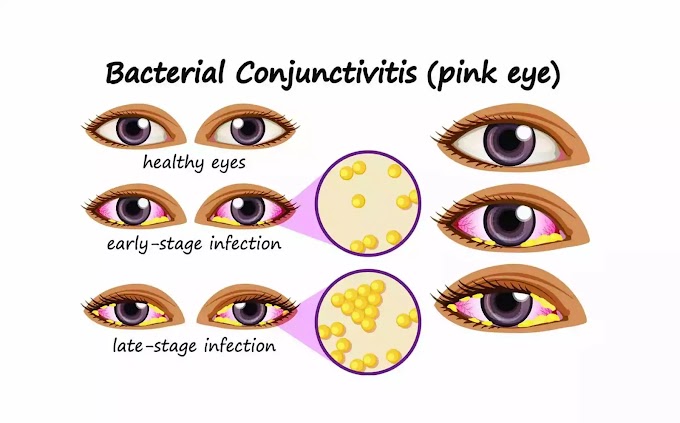When it comes to eye health, one common condition that many people encounter is eye flu conjunctivitis, often simply referred to as conjunctivitis. This highly contagious eye infection can cause discomfort and irritation, but understanding its causes, symptoms, and treatment options can help you manage the condition effectively.
What is Eye Flu Conjunctivitis?
Eye flu conjunctivitis is an inflammation of the conjunctiva, the thin, clear tissue that lines the white part of the eye and the inside of the eyelid. It can affect one or both eyes and is often caused by infections, allergens, or irritants. The condition is highly contagious and can spread through direct contact with infected individuals, touching contaminated surfaces, or sharing personal items like towels or eye makeup.
Causes of Eye Flu Conjunctivitis
Conjunctivitis can have various causes, including viral infections, bacterial infections, and allergic reactions. Viral conjunctivitis is commonly associated with the same viruses that cause the common cold and can result in redness, tearing, and itchiness. Bacterial conjunctivitis is caused by bacterial strains and leads to symptoms such as yellow or green discharge and crusting of the eyelids. Allergic conjunctivitis, on the other hand, is triggered by allergens like pollen or pet dander and leads to itching, redness, and excessive tearing.
Symptoms to Watch Out For
The symptoms of eye flu conjunctivitis can vary depending on the underlying cause. However, common symptoms include redness in the white part of the eye, increased tearing, irritation, itching, and a gritty sensation. Additionally, discharge from the eye, either watery or thick, can also be present. These symptoms can range from mild to severe and may affect one or both eyes.
Diagnosis and Medical Evaluation
If you suspect you have conjunctivitis, it's important to seek medical evaluation. An eye doctor will examine your eyes, review your symptoms, and determine the cause of your conjunctivitis. This is crucial because the treatment approach can differ based on whether the infection is viral, bacterial, or allergic in nature.
Differentiating Between Viral, Bacterial, and Allergic Conjunctivitis
Proper diagnosis is essential to determine the most effective treatment. Viral conjunctivitis typically clears up on its own within a week or two. Bacterial conjunctivitis may require antibiotic eye drops to alleviate symptoms and prevent spreading. Allergic conjunctivitis can be managed by avoiding allergens and using antihistamine eye drops.
Preventive Measures
To prevent the spread of conjunctivitis, it's important to practice good hygiene. Wash your hands frequently, avoid touching your eyes, and refrain from sharing personal items. If you're diagnosed with conjunctivitis, it's advisable to stay home to avoid infecting others, especially in schools and workplaces.
Home Remedies for Soothing Discomfort
While medical treatment is often necessary, there are also home remedies that can provide relief. Applying a clean, warm compress to your closed eyelids can help reduce discomfort. Additionally, lubricating eye drops can help soothe dryness and irritation.
When to Seek Professional Medical Help
If your symptoms are severe, persistent, or worsening, it's important to consult an eye doctor. Seek professional medical help if you experience eye pain, sensitivity to light, blurred vision, or if your symptoms are accompanied by other health issues.
Medical Treatments: Drops and Medications
For bacterial conjunctivitis, antibiotic eye drops or ointments are commonly prescribed. These medications help eliminate the infection and relieve symptoms. Viral conjunctivitis may not require specific treatment, but your doctor might recommend artificial tears to alleviate discomfort.
Hygiene Practices to Minimize Spread
To prevent the spread of conjunctivitis, follow strict hygiene practices. Wash your hands regularly, avoid touching your eyes, and disinfect frequently touched surfaces. This is especially important in settings where people are in close contact, such as schools and daycare centers.
Managing Conjunctivitis in Different Age Groups
Conjunctivitis can affect individuals of all ages, but its management can vary based on age. For instance, newborns with conjunctivitis may require immediate medical attention, while adults can often manage the condition with proper hygiene and treatment.
Impact on Daily Life and Activities
Conjunctivitis can disrupt daily life and activities due to discomfort and contagiousness. It's advisable to take time off from work or school until the symptoms improve and the infection is no longer contagious.
Common Misconceptions About Conjunctivitis
There are several misconceptions about conjunctivitis, including the belief that it's only caused by poor hygiene. In reality, conjunctivitis can result from various causes, including infections and allergies.
Eye flu conjunctivitis, or conjunctivitis, is a common eye infection with various causes and symptoms. Whether it's viral, bacterial, or allergic in nature, prompt diagnosis and appropriate treatment are essential to manage the condition effectively. By following good hygiene practices and seeking medical attention when needed, you can minimize discomfort and prevent the spread of conjunctivitis.










